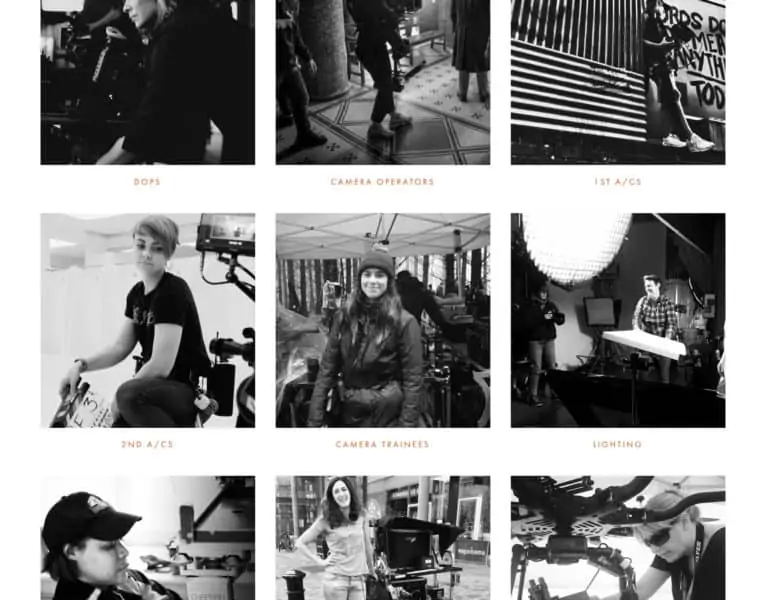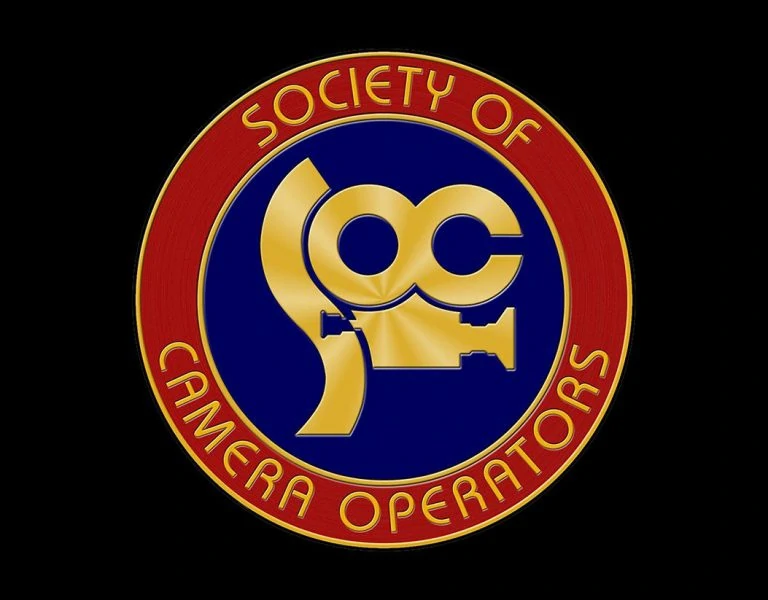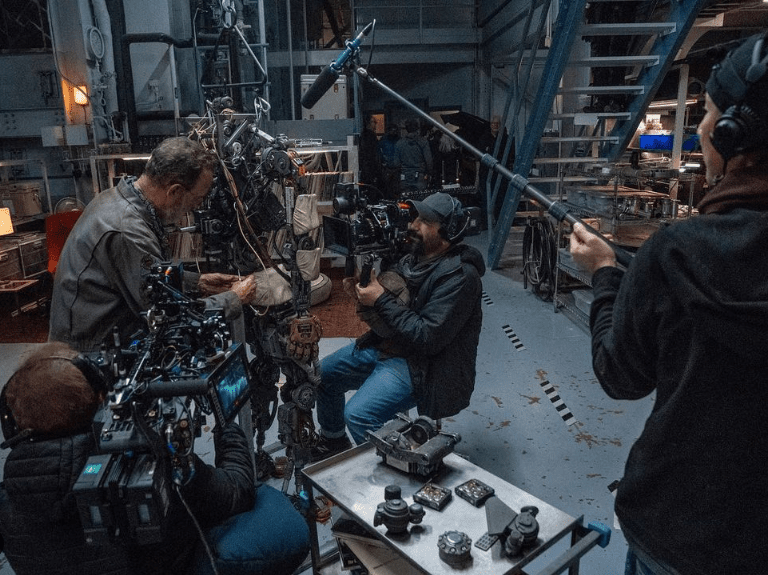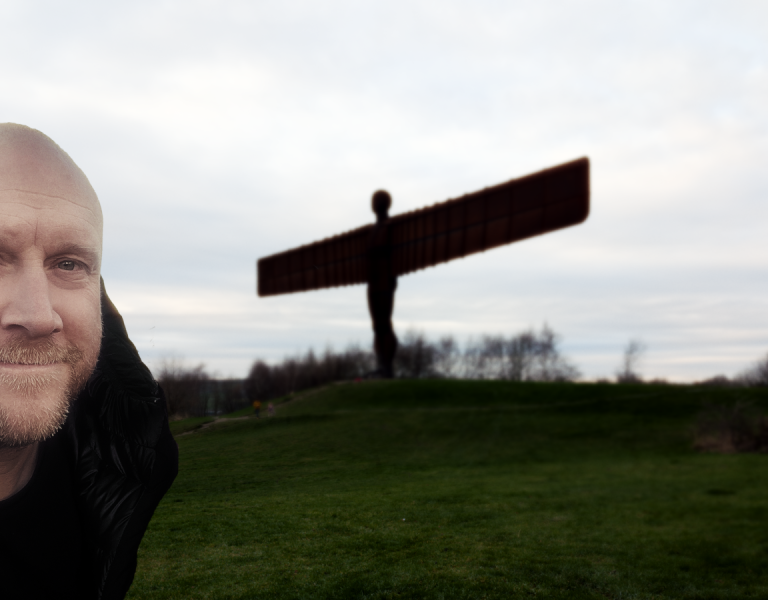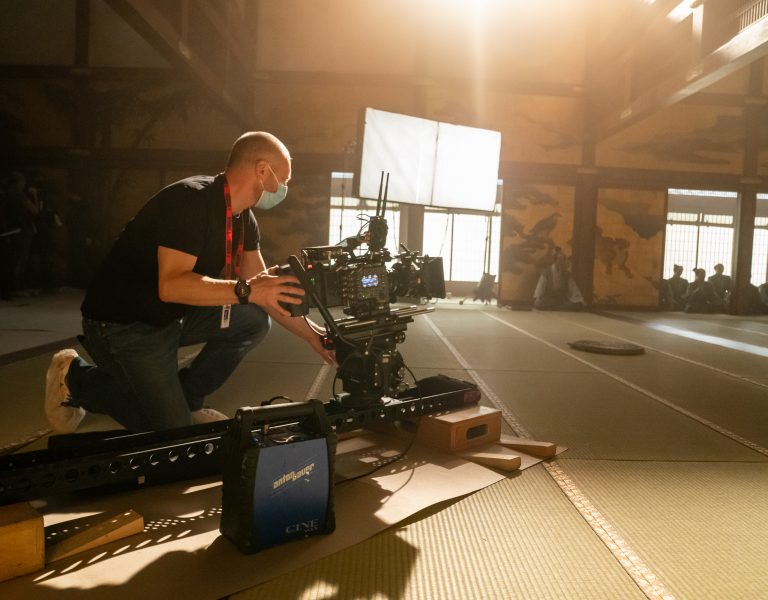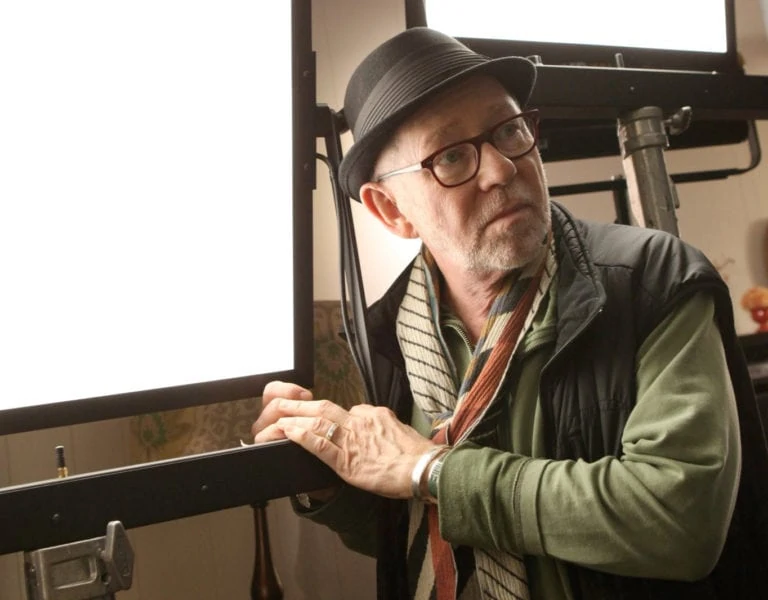CREATIVE ENERGY
Selected filmography (as camera operator):
Ferrari (2023)
The Great (TV series 2023)
House of the Dragon (TV series 2022)
A Discovery of Witches (TV series 2022)
The Dig (2021)
A Confession (TV series 2019)
What inspired you to become a camera operator? Did you always want to work in film?
For as long as I remember, I have always loved moving images. Perhaps it’s a product of growing up in a small Polish town during communism and being a dreamer and escapist. My parents were strict about an early bedtime, but my dad – who was a metal worker and was often helping his parents on the farm after work – would always come home very tired and then would fall asleep in front of the telly. I worked out that if I tweaked the TV to the right angle, I would be able to watch the telly from my room in the reflection of a glass cabinet. That is how my younger brother and I spent our childhood evenings – watching films and programmes till late at night. I went to school half asleep every morning. I also remember one day seeing those beautiful 1940s black-and-white stills from a Hollywood set of men in tweed jackets gathered around a huge camera. I was absolutely mesmerised and wanted to become the person behind the camera.
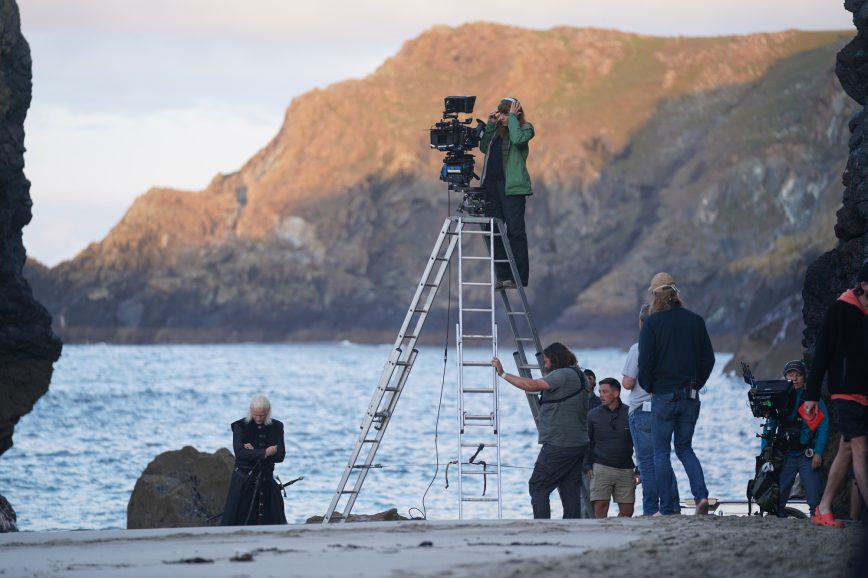
How and where did you learn the craft?
I was at high school and borrowed a film stills camera from a friend. I taught myself how to expose film and began taking pictures. With the first money I earned, I bought a camcorder and started to film family celebrations, not to mention some rubbish films with friends. This was still in small-town Poland. We loved messing around, but it felt a long, long way from any actual ‘film industry’.
After I graduated (with an economics degree), I lived and worked in Sweden and then the UK, as I wanted to learn English (my generation grudgingly learned Russian at school). I fell in love with England and decided to stay for a while. After a few years of backpacking, working as a cleaner, waitress, cook, and then studio photographer, I got a job as a production assistant for a small TV company. I shot some content for them, and during that time became familiar with Mandy.com and Shooting People, working on unpaid shorts as a camera assistant and also as stills photographer. I met my husband on a production and we shot a charity video together in India. He was working in the film industry in the sound department, and I started to understand that this was actually a realistic possibility. London was where major motion pictures were being shot. I went back to university to study cinematography and post-production, and started lighting and shooting low budget shorts, music videos and corporates, with the goal of working in the camera department as a trainee on bigger productions.

How did you get started in the industry and what was your career progression?
I had worked on a couple of TV comedies when I was selected to be a GBCT camera trainee. I was a good ten years older than everyone else (I’d just shot my first ultra-low budget feature but really wanted to go the traditional industry route, learning from established, experienced crew). The age thing was a bit of an issue for me and, on top of that, I was the only foreigner and only female on the scheme that year. I talked to the GBCT’s Dee Edwards about it, and also about having a family one day. Dee’s refreshing advice was to simply lie about my age if it made me feel better and, if I got round to having a family, I should tell people I was off shooting in India for a year. Her tone of voice was enough for me to stick to what I really wanted. Through the scheme I made a couple of contacts which led me to a few years’ consistent work as a trainee and then a loader. In parallel I carried on shooting and lighting low budget projects, thinking that one day I wanted to become a DP. It wasn’t until I worked as a camera operator on a (theatrically released) feature in Poland that I fell in love with the role and felt like I had arrived.
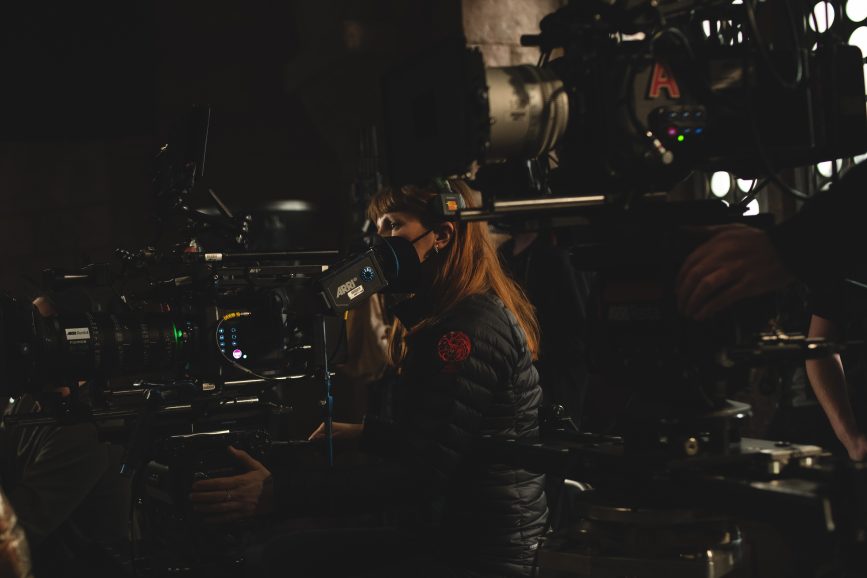
What would you single out as your big break?
I had worked as an operator on several independent features in Poland, Mexico, and the US, but only on low/no budget stuff in the UK, where I was still earning my money as a 2nd AC. A lot of people had given me the advice to ditch the assisting and start calling myself an operator, but that was easier said than done – and then along came my daughter, Apolonia, which meant an 18-month hiatus.
I had met DP Ness Whyte previously at the Camerimage Festival in Poland, and she was now looking for a B-camera operator for the last six weeks of her shoot, A Confession. She was aware that I hadn’t worked for a while and felt out of touch with the industry. I was still breastfeeding and sleep deprived, but at the same time I felt that given an opportunity I could handle the job. It was wonderful that I talked to her about it so frankly and she was still happy to have me on board. Towards the end of the job, I thanked her for taking the risk in employing me. She laughed and told me off for calling it a risk, as she said she employed me based on my showreel and reputation. That relaunched me as an operator in the UK, and I didn’t work as an assistant again.
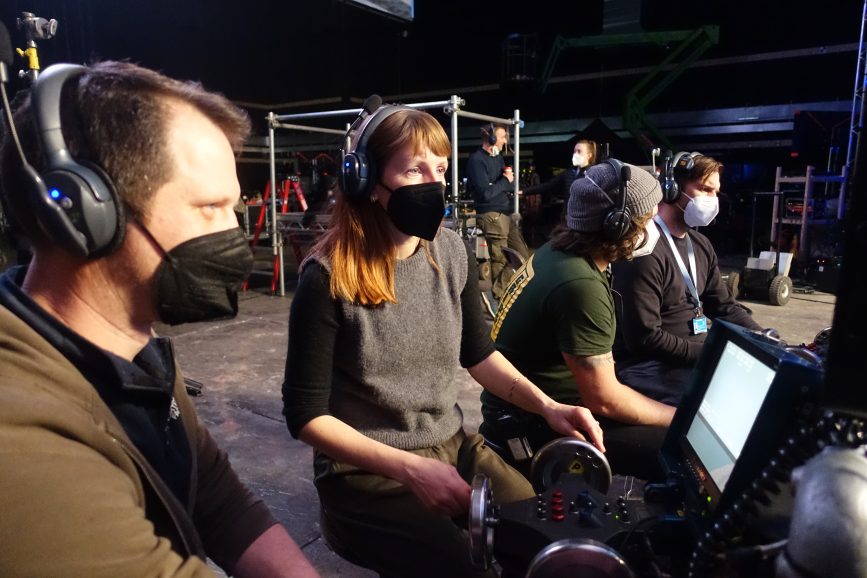
What do you believe are the key qualities of a star camera operator?
The list is long: being empathetic and humble, a good communicator, adaptable, patient, diplomatic, and aware. You have to use initiative when needed and be self-sufficient, yet take directions, and understand and care about directors’ ideas. You need to be in tune with the actors and your camera crew, remain calm when dealing with pressure, stay enthusiastic, and bring your own personality to work with you: the way you perceive the world, connect with people, and use your own experiences and instincts to tell the story.
What is at the heart of a successful camera operator/DP relationship?
Open, friendly collaboration with mutual respect and trust. Clear communication, with shared aesthetics and values. Being in tune, especially in situations where one of you needs extra support.
What do you enjoy most about your job?
Operating allows me to go into a zone where I can forget everything but what is in front of the camera. There is nothing better than feeling in tune with the unfolding action, and especially with a great performance. I love being a part of the creative energy on set – watching the rehearsal, listening to the director and DP talk, and then formulating the shot that the director envisioned. On set, you are surrounded by creative and highly skilled crew, and this is very inspiring.
I enjoy working for different DPs as everyone has such a unique way of looking and seeing. I love it when everything comes together – when you, your grip and focus puller find a rhythm and together produce a great shot. When you’ve read a script imagining the scene, but then you shoot it, and it still takes you by surprise. When you travel the world and go to the most beautiful or unknown places and work with an international crew. Or when you are on a wet night shoot, swimming in mud, but you are still so excited because you can’t believe you do what you love.

What obstacles do you face in your career and how do you overcome them?
I think the hardest thing for me is trying to overcome imposter syndrome – the sense that I’ve just got lucky and don’t belong in my role. It can be overwhelming and stop you from going after opportunities, for example by downplaying your achievements. With time and encouragement, and especially longer runs on jobs, this recedes into the background, but I find it soon reappears if I have a bit of time off. It’s very important not to think of yourself as “not the right kind of person” for the job – which, after all, needs all kinds of different people.
What are the biggest recent changes you have noticed in the industry (if any)?
The exciting thing is that the UK industry feels very different to what it was when I joined over a decade ago. The perception of diversity and inclusion has improved, and opportunities are ever increasing, which can only serve to strengthen and refresh our industry. A mixed crew functions better overall and helps to create a positive experience for crew members, not to mention those who are in front of the camera. I just wish there was more done by everyone as the change is very slow. If film sets are one day to be a truly mixed workplace, we need help not only from individuals but from studios and productions to make this work. There are nevertheless many DPs now who use their positions of leadership to diversify their crews, and there are groups like illuminatrix and WBTC (Women Behind the Camera) who are playing an instrumental role in so many women’s progression on set through encouragement, moral support, training, and celebrating each other successes.
One of the most rewarding things for me when I joined House of the Dragon S1 was to support DP Fabian Wagner ASC BSC in his efforts to create a diverse camera department. He also introduced his mentoring scheme, First Steps Cinematography, and got HBO on board to cover the cost of 12 mentees (each one of them had three weeks of paid internship). Sony is next to follow the initiative on Fabian’s next feature. I hope other DPs and studios will be inspired by those initiatives as even with the best intentions and greatest efforts, we cannot achieve a diverse camera department without everyone else being a part of the solution.
What are you currently working on?
I’m about to start prep for Venom 3, shooting for Fabian and director Kelly Marcel. This year I have taken a break after two very busy years of back-to-back productions. Having spent the last couple of months doing dailies, I now can’t wait to be fully immersed in the project.
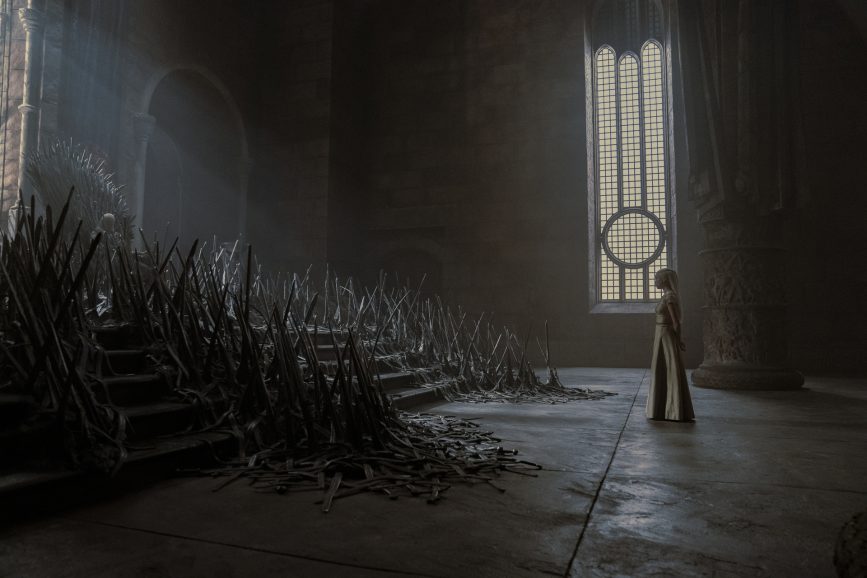
–
Miguel Sapochnik, director, Game of Thrones, House of the Dragon says…
“I first worked with Aga on season one of House of the Dragon. Jumping into B cam on what is considered one of the biggest shows in the world would be a challenge for anyone, no matter how experienced, but Aga handled it with grace and got stuck in from the start. She rose to the occasion, listening to and taking on board our detailed notes on composition and style, working with myself, the other directors, and DPs to help establish a look that evolved as the season evolved. The results speak for themselves.”
Fabian Wagner ASC BSC says…
“To me Aga encompasses everything I’m looking for in an operator. She’s hugely creative with a very strong visual sense but at the same time happy and willing to listen and understand me as a DP. On top of that she is one of the loveliest human beings to be around, with a strong sense of teamwork and willingness to help and support others. Working with her to me is rewarding and inspiring.”
